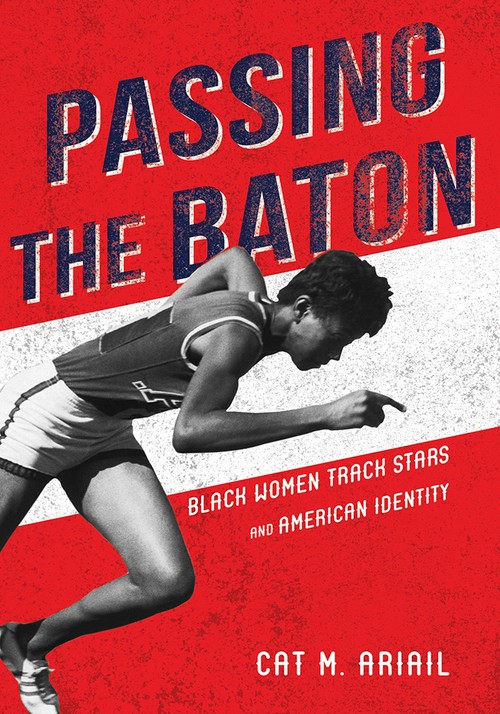
Passing the Baton
Black Women Track Stars and American Identity
How African American women athletes tested a nation's image of itself
Cloth – $110
978-0-252-04348-2
Paper – $24.95
978-0-252-08538-3
eBook – $14.95
978-0-252-05236-1
Publication Date
Paperback: 11/30/2020
Cloth: 11/30/2020
Cloth: 11/30/2020
Series: Sport and Society
About the Book
After World War II, the United States used international sport to promote democratic values and its image of an ideal citizen. But African American women excelling in track and field upset such notions. Cat M. Ariail examines how athletes such as Alice Coachman, Mae Faggs, and Wilma Rudolph forced American sport cultures-both white and Black-to reckon with the athleticism of African American women. Marginalized still further in a low-profile sport, young Black women nonetheless bypassed barriers to represent their country. Their athletic success soon threatened postwar America's dominant ideas about race, gender, sexuality, and national identity. As Ariail shows, the wider culture defused these radical challenges by locking the athletes within roles that stressed conservative forms of femininity, blackness, and citizenship.A rare exploration of African American women athletes and national identity, Passing the Baton reveals young Black women as active agents in the remaking of what it means to be American.
About the Author
Cat M. Ariail is a lecturer in the Department of History at Middle Tennessee State University.Reviews
"A worthwhile addition to public-library collections on Black American sports, Olympic history, and gender studies." --Booklist"Passing the Baton is engaging, optimistic, and unsentimental--it elucidates a rarely discussed period of American athletic history and thus offers much value to any demographic." --Journal of African American Studies
"Ariail's intersectional analysis of race and gender is detailed in explication of white and Black press representations of--as well as coaches', track-and-field officials', and politicians' public statements about--Black women track and field athletes. . . . Passing the Baton is an important reconsideration of Black women athletes' physical and representational performances as ideological work equivalent to other cultural workers and civil rights leaders." --Journal of American History
"What makes this book a priceless contribution to the field of sport history is Ariail's argument that the athletic victories of Black women in track and field surpassed the sports stage and directly impacted political relationships with the Unites States and forged America's image. . . . I highly recommend this book as it intermingles foreign politics, American values, and challenges experienced by Black women in track and field seeking to reach the epitome of athleticism." --Journal of Sport History
"Passing the Baton is a well-written and impressively researched exploration about the place of Black women athletes in the American imagination." --Register of the Kentucky Historical Society
"Cat Ariail's Passing the Baton is a thoughtful and engaged study that brings a focus on the personal to the scholarship focused on the importance of track stars to the development of a Cold War sporting culture in the United States. . . . Ariail's attention to uncovering and illuminating the voices of these young stars invigorates her study and provides a detailed understanding of how Black women moved in spaces that were defined by whiteness and masculinity." --Journal of African American History
Blurbs
"Ariail pinpoints how important the women of track and field were to changing opinions in both white and black communities about the accomplishments of women of color. But she also powerfully argues that this story does not end with victory. Rather, she reminds us how much work gender did (and does) to undergird racism."--Katherine C. Mooney, author of Race Horse Men: How Slavery and Freedom Were Made at the Racetrack










